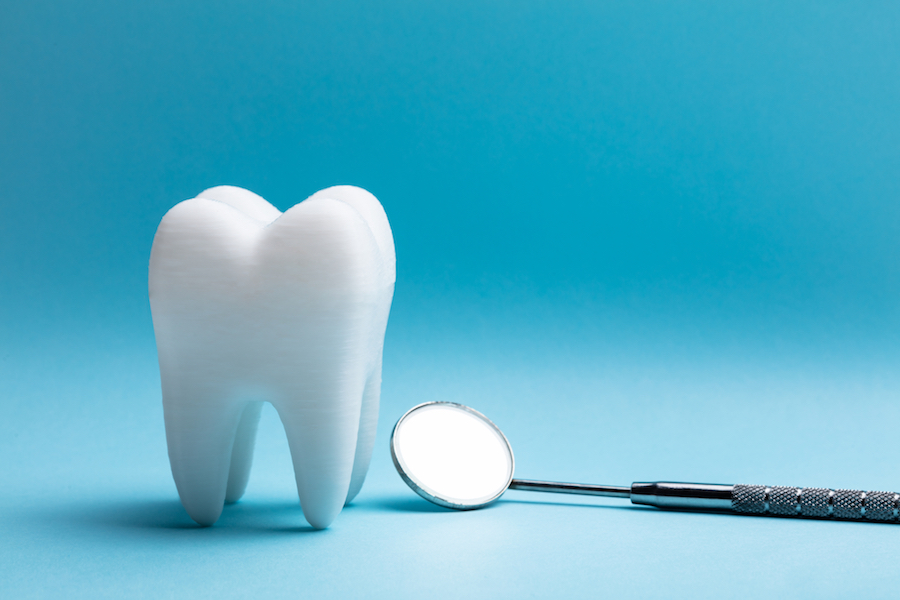
The Wisdom Teeth Extraction Procedure:
What to Expect
You may wonder what the dentist does when extracting a wisdom tooth. A typical wisdom tooth extraction procedure includes the following:
1. Administer Anesthesia. Usually sedation or general anesthesia is administered first. The type of anesthesia depends on the complexity of the procedure and your comfort level. Then Dr. McGee will apply local anesthesia to numb the gums in the area.
2. Tooth Removal. The dentist will make an incision in the gum and remove any bone that interferes with getting to the tooth’s roots. The tooth gets split into sections and removed.
3. The Area Gets Cleaned. After tooth removal, the dentist will clean the site of debris. In most cases, patients will get stitches. Gauze is then placed over the socket to promote blood clotting.
4. Recovery. Immediately after the procedure, you may be taken to a room to recover and allow the anesthesia to wear off.
5. Follow Up. Most patients do well and there is no need for a follow-up visit. Dr. McGee is willing to help quickly if a complication comes up. Stitches normally fall out on their own in about 2 weeks.
Here are some extra things to keep in mind going into your procedure:
Lower your risk of complications. Sucking through straws, spitting, smoking, certain prescriptions, and medications can increase the risk of complications. Dry socket is the most common complication. This condition is caused by the dislodging of the blood clot that forms in the socket of the gums.
You’ll need a ride home. Local anesthesia will be used as well as sedation anesthesia. General anesthesia will be used in certain situations. With general anesthesia, you’ll lose consciousness during the procedure. Even with sedation anesthesia, your ability to operate a vehicle gets compromised. Because of this, you should arrange transportation afterward. Lay low for the first 24 hours.
You’ll need to rest for the first 24 hours after your procedure. Avoid strenuous activity. This can dislodge the blood clot that formed during the tooth extraction procedure. Use ice often and keep your head elevated to reduce swelling. Stay away from brushing in the area. Continue to brush your teeth like normal. However, don’t brush where the holes are. The holes where the wisdom teeth once were more likely to have stitches. A toothbrush can remove the stitches, exposing the gums to infection and slowing down the healing.
Watch what you eat during recovery. After the removal of your wisdom teeth, you’ll need to be careful about what you eat. You should avoid hard, crunchy, sticky, spicy and hot foods. Avoid hot liquids as well as alcohol, soda, coffee, and sugary drinks. To keep the blood clot in the socket intact and in place, avoid drinking from a straw and spitting.
The wisdom tooth procedure is quick. Since the wisdom teeth extraction procedure is an outpatient surgery, you’ll be able to go home the same day. It usually takes 30-40 minutes. The recovery time is quick as well. You’ll be able to get back to your regular routine a few days later. Your diet will need to get adjusted for a few weeks. How you brush your teeth around the extraction will also be different for a few weeks as well.
Expect short-term pain and discomfort.
It is normal to experience pain, swelling, bleeding and oozing afterward. Pain relievers will often treat the discomfort. Use NSAIDs if you can the first few days. Schedule a follow-up appointment with your dentist when you notice these symptoms:
• The pain and swelling get worse
• A bad taste in your mouth
• Bad breath that is worse than usual
Dry socket is a common infection that is the result of wisdom tooth extraction. This condition happens when the blood clot in the gum sockets gets dislodged.
With the use of anesthesia, this outpatient surgical procedure is almost painless. Patients are able to resume their regular routine shortly following the procedure. During the recovery process, avoid certain foods, drinks, and strenuous exercise. Strenuous activity should be avoided for one week post operatively with impacted wisdom teeth.
Like any other surgery, it is important to talk to Dr. McGee and ask questions and concerns.
